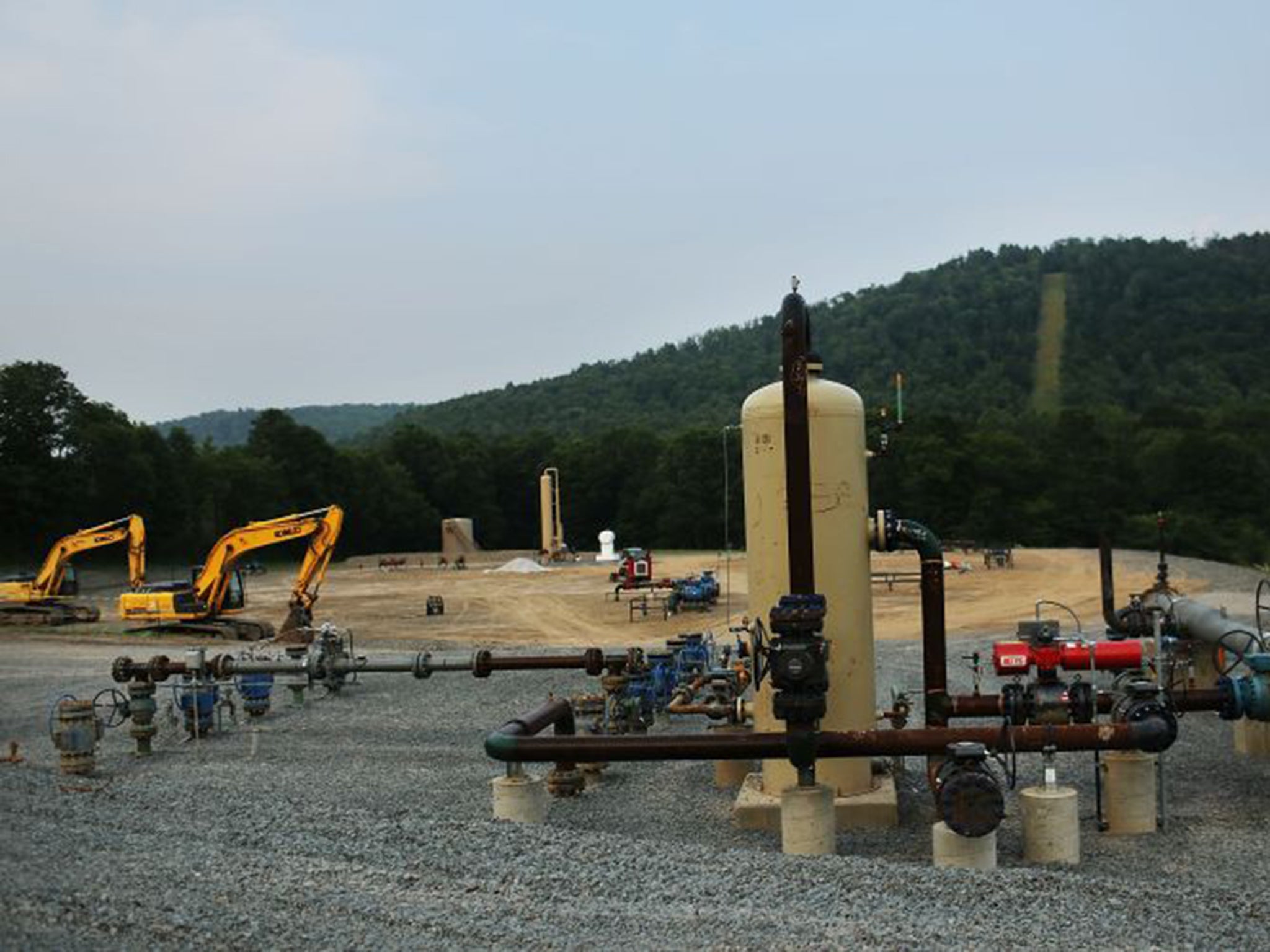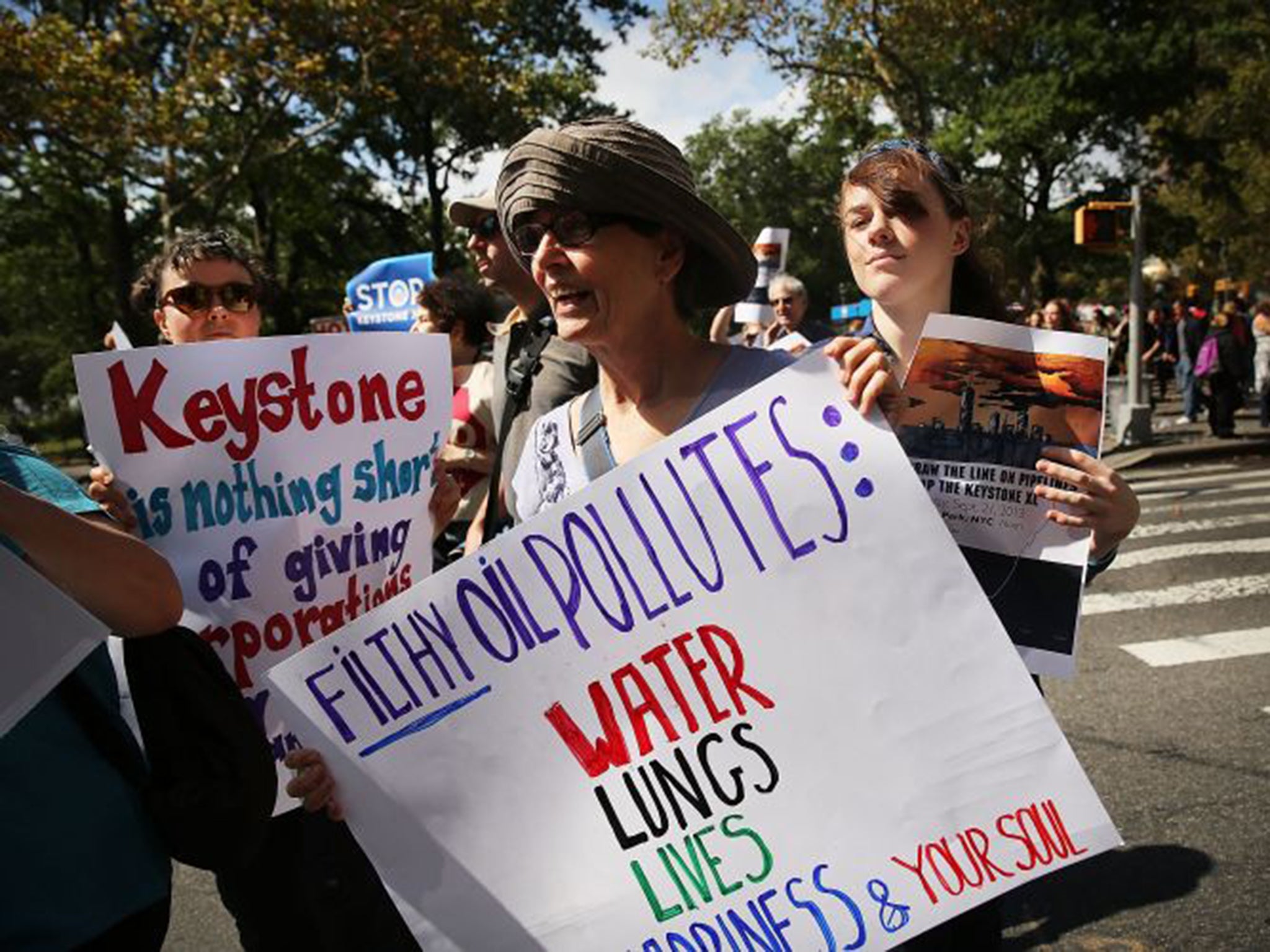Fracking to prompt sharp rise in greenhouse gas emissions, study says
Authoritative research undermines industry and government claims that shale gas is a relatively clean fuel

Your support helps us to tell the story
From reproductive rights to climate change to Big Tech, The Independent is on the ground when the story is developing. Whether it's investigating the financials of Elon Musk's pro-Trump PAC or producing our latest documentary, 'The A Word', which shines a light on the American women fighting for reproductive rights, we know how important it is to parse out the facts from the messaging.
At such a critical moment in US history, we need reporters on the ground. Your donation allows us to keep sending journalists to speak to both sides of the story.
The Independent is trusted by Americans across the entire political spectrum. And unlike many other quality news outlets, we choose not to lock Americans out of our reporting and analysis with paywalls. We believe quality journalism should be available to everyone, paid for by those who can afford it.
Your support makes all the difference.Fracking is set to lead to a sharp rise in emissions of climate changing greenhouse gases, newly undermining industry and government claims that shale gas is a relatively clean fuel that can help combat global warming, an authoritative new study reveals.
On Thursday, the United States and Canada agreed to cut methane emissions from the oil and gas industry by almost half.
The new study strikes another blow at the strategy of both the US and British governments to rely on shale gas as a relatively clean “bridge” from dirty fossil fuels to non-polluting renewable sources such as the sun, winds, waves and tides.
Their policies are based on the fact that gas emits only half as much carbon dioxide as coal when it is burned – but do not take into account the leakage of methane and other greenhouse gases during the process. When these are added in, studies show, shale gas can create even more pollution than coal.
The new study – led by a former director of the US Environmental Protection Agency’s (EPA) Office of Civil Enforcement, who now heads the Environmental Integrity Project – focuses on emissions from industrial developments spurred by development of fracking fuel.

Fracking has led to a US gas surplus, which it is now increasingly exporting around the world after turning it into liquid natural gas (LNG). Last year alone, the report says, 23 new LNG gas-processing and compressing facilities were proposed or permitted across the United States. Once operating, these would emit the equivalent of 47 million tons a year of carbon dioxide, a 34 per cent jump over releases from the entire industry in 2014.
Simultaneously, new supplies of shale oil from fracking are also causing an increase in refining petroleum. Seven new refineries were proposed or permitted in the US last year, which would release another 5.4 million tons a year, when running.
The report – “Greenhouse Gases from a Growing Petrochemical Industry” – adds that the cheapness of shale gas is encouraging other energy-intensive industries to expand. Seven new fertiliser industry projects are scheduled to emit another 15.8 million tons of carbon dioxide equivalent, and seven new chemical plants would add another 17.6 million tons.
In total, the almost 86 million tons a year emitted by all these plants, when and if they are in operation, would be equivalent to the climate-changing pollution from 19 coal-fired power plants, the report concludes.
This will come as a blow to President Barack Obama’s attempts to reduce US emissions of greenhouse gases, as a legacy issue for his second term in office. On Thursday he struck a “fully united” agreement to tackle them with the new Canadian Prime Minister, Justin Trudeau, who is also making tackling climate change a top priority for his administration. Their most striking decision was to cut emissions of methane – which is 86 times more potent in warming the Earth over a 20-year period than carbon dioxide – from the oil and gas industries by 40 to 45 per cent from 2012 levels by 2025.
The agreement was attacked by the American Petroleum Institute for potentially “discouraging the shale energy revolution”, but Gina McCarthy – who heads the EPA, which has consistently underestimated industry leakage – said: “It has become clear it is time to regulate existing sources in oil and gas.”
The industry suffered another big setback when both Democratic presidential candidates made clear their hostility to shale gas and oil in a debate last Sunday. Senator Bernie Sanders said: “I do not support fracking”, citing dangers to water supplies. And Hillary Clinton said that she would enforce tough regulation – including over methane leaks – to the extent that “I do not think that there will be many places in America where fracking will continue.”
However, expert allegations that fracking maybe responsible for a surprise 30 per cent increase in methane over the United States in the last decade are challenged by new research, published in the journal Science, suggesting that it may instead be due to agriculture especially dairy farming.
Join our commenting forum
Join thought-provoking conversations, follow other Independent readers and see their replies
Comments